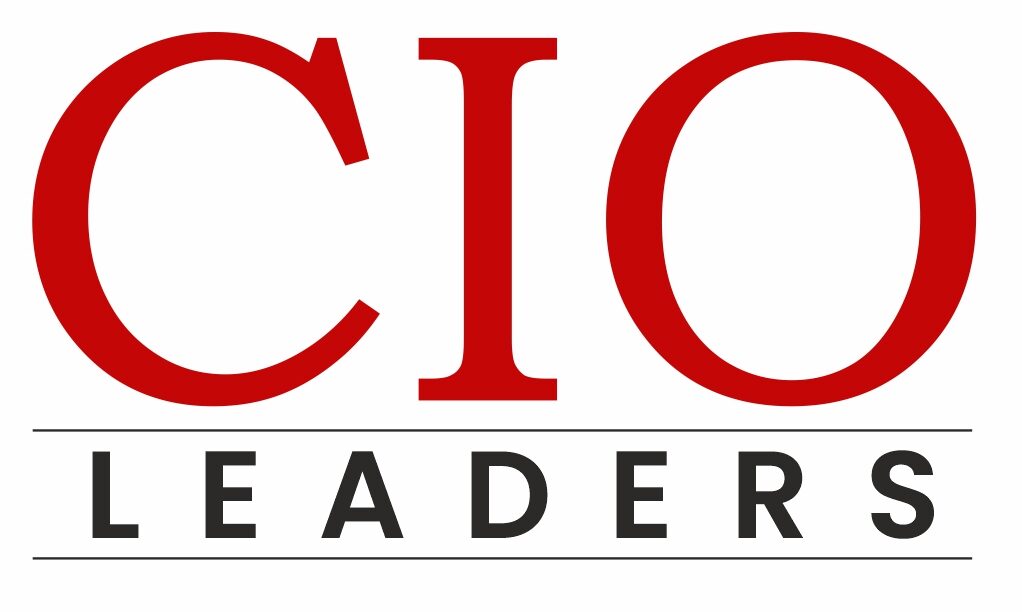Thomas Bargetzi brings over 20 years of expertise as an international specialist in reorganization, restructuring and organizational/process change. With a remarkable track record of handling over 50 mandates across 30 countries on 5 continents and in 19 diverse industries, Thomas has demonstrated versatility in navigating a wide range of situations.
His professional journey includes roles at prominent companies such as Pepsi-Cola, NutraSweet, Sunrise Medical, and Mars Inc., all of which are customer-oriented organizations.
Thomas places a fundamental emphasis on customer satisfaction, considering it the cornerstone of any successful business. His philosophy revolves around the idea that customers, who ultimately fund the organization through their purchases, should always be the focal point of attention. This customer-centric approach is instilled across all aspects of the business, from the front desk to social media interactions, emphasizing the importance of every touchpoint in shaping customer experience.
As a leader, Thomas advocates for a mindset where the phrase “not possible” is never an option. He believes in living and embodying this customer-centric mindset in daily work. According to Thomas, leadership involves being a visible and active presence for staff and customers, rather than being confined to administrative tasks behind a desk. There is no excuse, in his view, for neglecting customer care.
Implementing Key Performance Indicators (KPIs) is part of Thomas’s strategy to measure and improve organizational performance. He stresses the importance of sharing these KPIs with the entire staff, fostering a culture where employees are actively engaged in discussing and understanding the metrics that drive the business.
Regular expressions of gratitude and recognition for the efforts of the team are essential components of his leadership philosophy. For Thomas, a KPI is not a secret; it is a tool to be transparently communicated and discussed throughout the organization.
Restructuring a Construction Company
One of Thomas’ significant challenges involved restructuring a construction company in Germany with substantial financial losses, totaling double-digit millions of euros over several years. The company, with 3,300 employees, a turnover exceeding 1.3 billion euros, and 354 sites, faced a daunting task.
Thomas led a project team of 10 people, and he named the project “the wonder of Bern.” Despite widespread skepticism, he successfully implemented a transformative strategy. His approach involved fostering a football-team-like spirit within the organization, treating employees as individual players with unique strengths and weaknesses. He encouraged them to realize their ideas, accepted failure as part of the process, and established a sales organization based on his extensive experience in sales and marketing with American companies.
A crucial element of the turnaround was implementing a rigorous reporting system with precise facts and figures throughout the organization, leaving no room for interpretation. After two years and two months, the company achieved break-even. Thomas then introduced a new organizational structure, leveraging individuals he knew from various parts of the organization. Six years later, these individuals continued to excel, forming the backbone of a company that was listed on the stock exchange in Germany. With a turnover of 20 billion € for the entire group, the part Thomas was heading brought in a turnover of 1.3 Billion €.
Managing Across Time Zones
Managing a company with a significant time difference between New Zealand and Germany posed unique challenges for Thomas. With a 12-hour time gap and being in different seasons, coordinating between the two locations became a complex task. One side was in deep winter, while the other experienced a very hot summer, adding to the contrast.
To address these challenges, Thomas implemented two key strategies:
- Cultural Translator: Recognizing the behavioral and working style differences between New Zealand and Europe, Thomas enlisted the support of a seasoned individual within the organization. This person had lived in Germany for many years, providing valuable insights into the cultural nuances and acting as a “translator” to help bridge the gap in understanding.
- Establishment of an Office in Singapore: To create a more centralized and accessible location, Thomas set up an office in Singapore. This strategic move positioned the office halfway between New Zealand and Germany, facilitating easier collaboration and communication. The Singapore office served as a neutral ground, minimizing the challenges posed by the significant time difference and seasonal variations.
These initiatives not only helped navigate the practical obstacles of time zones and cultural disparities but also fostered a more effective and harmonious working relationship between the teams in New Zealand and Germany.
Pioneering, Advocacy, and a Passion for Solutions
Thomas reflects on his 22-year journey in the interim management field, emphasizing that he was among the pioneers in this domain. When he initially ventured into interim management, the prevailing perception was that it might be a temporary solution until he secured a new job. However, Thomas was resolute in considering this as his long-term career choice, positioning himself between operational management and traditional consultants.
In the early stages, Thomas faced the challenge of convincing both managers and consultants that interim management was a valuable and effective solution in specific situations. This led to the emergence of “Providers,” companies facilitating the hiring of interim managers. Unhappy with this development, Thomas, along with three business colleagues, founded DSIM, a new association dedicated to shaping the future of interim management.
Thomas clarifies that DSIM is not a platform for finding jobs or mandates but serves as an association focused on promoting and advancing the concept of interim management.
He sees interim management as a dynamic and evolving discipline, offering a unique approach to providing operational support and solutions for companies. Acknowledging that not everyone fully understands the scope of interim management, Thomas emphasizes the need for increased visibility and promotion of its potential in resolving business challenges.
To newcomers entering the field, Thomas imparts the importance of being passionate about their role in interim management. Rather than viewing it as a last resort for employment, he encourages them to see it as a fresh avenue for personal development and, consequently, a means to positively impact the companies they engage with. The guiding principle, according to Thomas, is that “resignation is never, never ever an option.”
Interim Management Journey
For Thomas, the journey into interim management was driven by a realization that his management style aligned more seamlessly with this field compared to large corporations. In contrast to corporate environments that often-placed importance on superficial factors like attire, hobbies, or the prestige of one’s alma mater, Thomas found interim management to be a better fit.
Drawing from his experience as a highly ranked Swiss Army officer (now inactive), Thomas highlights the early lessons he learned about taking responsibility and striving to achieve goals. His military background, shaped by Switzerland’s unique system, involved individuals fulfilling their regular jobs alongside additional military services mandated by law. This dual commitment instilled in Thomas a sense of responsibility and a commitment to excellence from an early stage in his life.
Language as a Bridge
For Thomas, effective communication in various languages is a key aspect of his work in companies. He fluently commands communication in 4 peak languages: German and French (mother tongue), English and Italian. The ability to communicate with individuals at all levels, even those not proficient in other languages, allows him to quickly identify potential issues from the sources.
Additionally, he emphasizes the importance of good behavior, noting that conversing with people in their language is a respectful and considerate approach. This practice extends to interacting with customers in their market language, aligning with the expectation of clear communication in the language of the audience.
Commitment to Personalized Service, Transparency, and Strategic Alignment
The decision to name his company “THOMAS BARGETZI” reflects a commitment to providing a personalized and direct service. By offering only his expertise, Thomas ensures a clear and unfiltered communication style with clients. He acknowledges that this approach may not always be easy for customers, but he remains authentic, openly sharing his perspectives on the situation.
The transparency extends to proposing solutions, outlining potential costs and predicting reactions. This straightforward approach is aimed at providing clients with the full package of Thomas’s experience, enthusiasm, and drive, ensuring a clear and effective collaboration.
For Thomas, aligning operational business with strategic decisions is crucial to achieving goals. Drawing an analogy with car racing, he emphasizes the importance of organizing the operational aspect of the business in a way that supports the strategic objectives. This forward-thinking approach, instilled in him through Swiss Army education, involves anticipating future steps and bringing the operational side to the next level.
Vast Information Landscape for Leaders
Thomas emphasizes the challenge of navigating information in the media, given its vast reach to millions of people. Acknowledging the impossibility of controlling how individuals interpret information, he advises leaders to limit their information sources to 3 to 5 trusted outlets.
Thomas suggests including different levels of news to stay connected with people from various backgrounds, including customers and employees. He further recommends that leaders be selective in their reading, focusing on the information that directly impacts their company, customers, and objectives. This approach allows leaders to prioritize their attention on matters that are most relevant to their responsibilities and goals.
The Agile Fire Brigade
Thomas perceives himself as a “fire brigade,” emphasizing the need for fast and effective solutions in his role. His mandates typically last for relatively short durations, ranging from 6 to 18 months, limiting the scope for long-term innovations.
Instead, Thomas focuses on quickly addressing and resolving issues within the given timeframe. Despite the short-term nature of his assignments, he continues to generate numerous ideas daily to improve and enhance the companies he works with.
Looking ahead, Thomas envisions continuing his work for the next 5 to 7 years, seeking new international challenges and advocating for interim management as a genuine alternative in business strategies.

